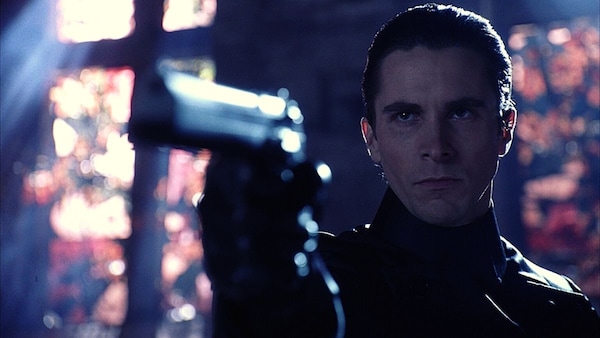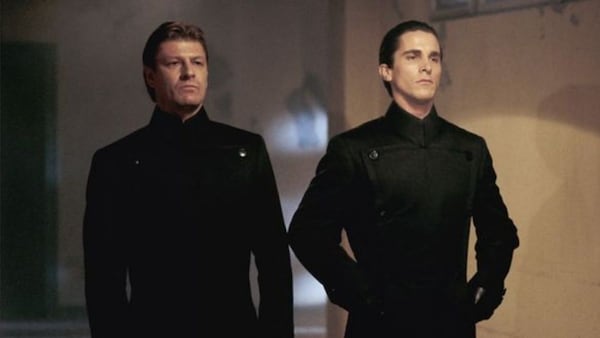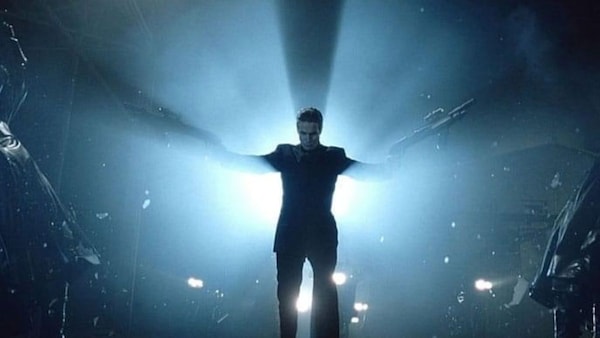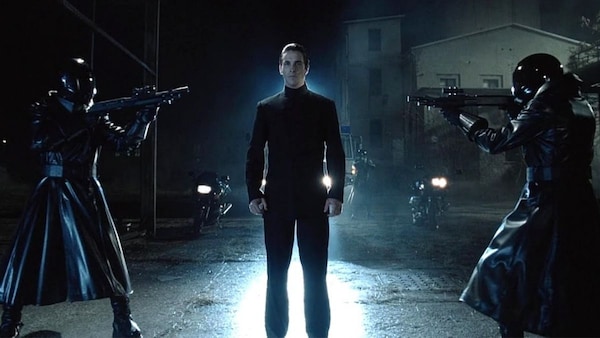Guilty Pleasure: Why the Christian Bale film, Equilibrium, is more than just a corny action film
The dystopian sci-fi is a stylised reiteration of George Orwell’s iconic novel 1984

Last Updated: 06.23 PM, Jan 11, 2022
The multiple adaptations of George Orwell’s 1984 have had varying degrees of success over the past 70 years. More often than not, these adaptations have rarely made waves in the box-office or the upper echelons of TV viewership. Which is an underwhelming fact considering 1984 is widely regarded as one of the most influential literary works from the postmodern era. One could point towards the fact that the dark subject matter and the largely tragic narrative for a vast majority of the plot would not essentially translate well on to screen. This is where the unofficial adaptation Equilibrium tried to position itself as a better version than the original adaptations. The film, directed by Kurt Wimmer, featured a stellar cast of Christian Bale, Sean Bean, and William Fichtner, offering some stunning action sequences and excellent world-building. Despite the potential the film promised, it spectacularly failed both commercially and critically.
The film’s failure in 2002 could have been damaging to Christian Bale’s and Sean Bean’s careers. Fortunately, both would go on to become top stars in the industry. Even though Sean Bean’s role does not extend beyond the first act of the film, his character is instrumental in setting the wheels in motion for the narrative. The filmmakers have taken a few liberties with the setting of the film in comparison to 1984. The most obvious deviation is the fact that the story is not set in 1984, but in the not-too-distant future of the 21st century. The film has also taken a significant part of its themes from Ray Bradbury’s novel Fahrenheit 451, a story in which books are outlawed and are burned by the state. In Equilibrium, the film has taken the concept of the ‘thought police’ from 1984 and merged it with Fahrenheit 451 to create a concept known as a ‘sense offender’, meaning people aren’t allowed to feel. This in turn means every art form is outlawed, and any activity that creates human emotion is also outlawed. Books, art, film reels are all burnt to crisp, and people caught breaking these laws are also incinerated.

The idea is that a world without feeling cannot hate, and a world without hate will not have crime. As absurd as it may sound, it is eerily similar to the functioning of several educational institutions across India. But as history has proven, bottling human emotions is a ticking time bomb with pent up rage. In the film, they use a system where they are regularly required to inject themselves with a serum at intervals that renders them emotionless. Anyone who refuses to follow these is deemed as a ‘sense offender’. The responsibility of catching these sense offenders are entrusted upon young children - similar to the ‘Youth Spies’ from 1984. However, the hallmark of the film is its stylised action scenes, most notably the fictional gun martial art called ‘gun kata’. These scenes are admittedly a bit over-the-top even for Rajnikanth, but as it is grounded in some sort of elaborate scientific logic it works well for the narrative.

Casting Christian Bale as a high ranking ‘cleric’ who is a lean mean killing machine was the filmmakers’ Idea of an action star - a far cry from Orwell’s Winston in 1984. Bale, to his credit, delivers a convincing performance and did not relegate his role as a stereotypical action hero. His transition from a stoic state-anointed killer to the face of the resistance is beautifully captured through his performance and the screenplay. The film was released long before he became a global phenomenon, and his performance is a testament that he can essay any character with ease. What is surprising is that he is the only British actor among the cast to use an American accent.

The film has an obvious aesthetic appeal, not often seen in dystopian narratives. The slick action sequences and the understated exploration into several socio-political themes has garnered the film a cult reputation over the years. It remains one of the most relatable adaptations of dystopian sci-fi novels, considering how even the most recent adaptation of Fahrenheit 451 was universally panned. Equilibrium belongs to a category of films where audiences and critics are miles apart in their assessment of films.

 Premium
Premium